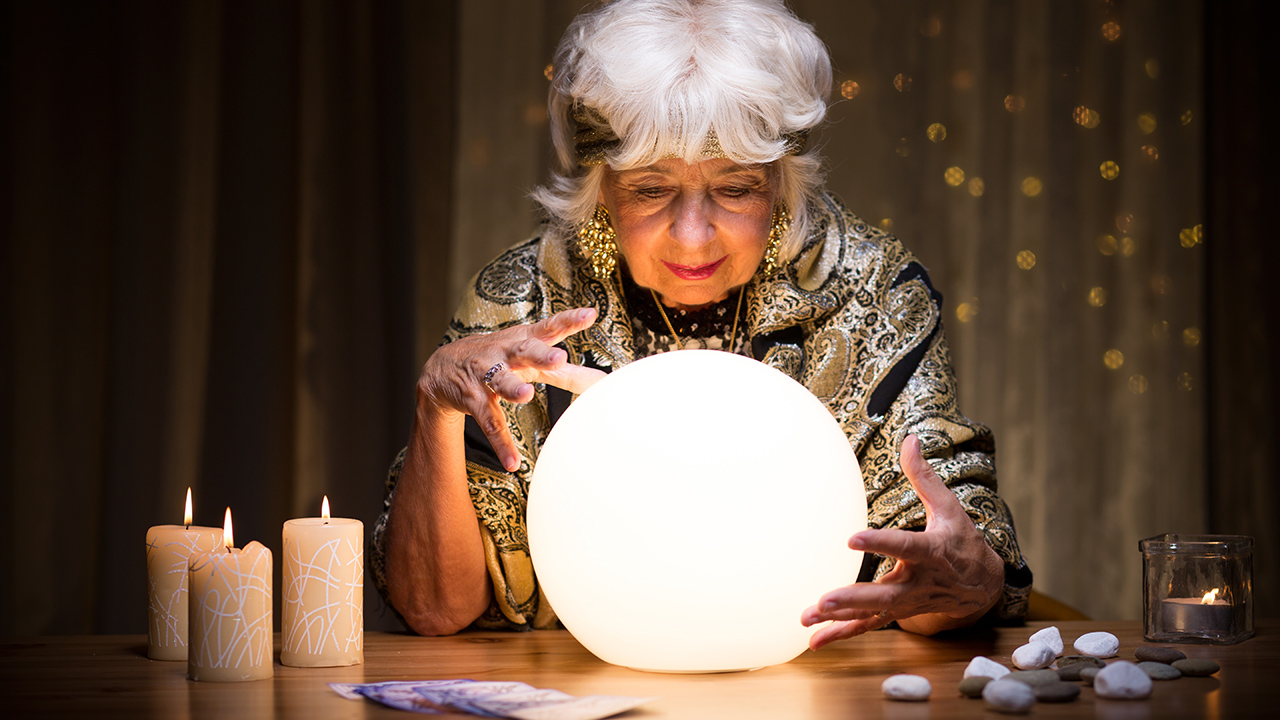
Roland Denning gives us his predictions for 2021 using his immensely accurate and entirely serious crystal ball.
It is a RedShark tradition that around this time I present my uncannily accurate predictions for the year ahead. If I failed to mention Covid-19 in my last round of predictions that is purely because I do my best not to upset our faithful RedShark News readers. Yes, I admit, even today, there are things I know but dare not tell.
Now we have scraped 2020 off the floor and thrown it in the bin, there is cautious optimism around that can be summed up by the phrase, surely it can’t get any worse? All I can say at the moment is, let us not get too excited; there is more to come.
So I peer deep into my viewfinder, and the year in front comes gradually into focus. As I rack from one month to the next, I present what I see with the minimum of distortion and my traditional flair. Or do I mean flare? It’s hard to say, my eyesight is not what it used to be.
Cameras retreat and lenses get longer
As the pandemic continues, crews find themselves, by necessity, further and further away from their subjects. Rental companies run out of long focal length lenses, and writers scramble to fill screenplays with phone booths, bubble cars and elevators as regulations insist that all actors are fully isolated from the rest of the crew.
Later in the year, filmmakers give up on live action shoots altogether. Movies become fully CGI, constructed through a vast connected network of isolated, lonely young men at home, who never wanted to leave their bedrooms anyway. Since live public events are no longer possible, award ceremonies too become entirely computer generated. It is discovered that the Academy Awards have, in fact, been computer generated for the last five years.
The rise and fall of home cinema
As cinemas remain closed, the nation is overcome with nostalgia for movies as they used to be. The desire to recreate the cinema experience at home is overwhelming and manufacturers compete to offer The Authentic Home Cinema Experience.
Complete packages offer automated red curtains suspended above the TV screen. Connected to a smart home server, curtains will open and house lights dim at the start of every movie presentation. The system offers an additional two surround sound channels to reproduce the dominating sound of audience chatter and the chewing and crunching of snacks. Additional modules are available to circulate the scents of stale popcorn and spilt cola. Role playing becomes popular with family members taking it in turns to be ‘disruptive audience member’, ‘bored usherette’ and ‘angry and disillusioned cinema manager’.
Netflix offer a ‘traditional movie theatre’ mode with simulated cue dots, variable focus, dirt, scratches, shifting frame lines and the occasional presentation of melting celluloid and reels in the wrong order. Netflix UK precede every movie with a generic and badly made advert for a local curry house, now reduced to providing takeaways.
Following the form they attempt to emulate, the popularity for the Authentic Home Cinema Experience soon goes into terminal decline when streaming services decide to charge £18 per head for movie rental.
The Apple Car
Apple finally introduces its driverless electric car, available in black, silver and rose gold.
Although no one is surprised that the batteries can only be replaced by the manufacturer, many are disappointed that not only do Apple cars have a non-standard, proprietary recharging socket but they will only run on Apple-branded electricity.
With full integration into the Maps, Contact and Calendar apps, there is no need to tell the car where or when you want to travel. Apple Cars start their journeys so promptly they often leave without passengers. This is of little concern as during the Great Lockdown of 2021 no one is allowed to leave their house anyway.
The good news...
By the end of the year the entire country will be successfully vaccinated. The vaccine is safe and effective with no notable physical side effects.
And the not so good news
Unfortunately, the vaccine does have some unexpected psychological side effects, the main one being to turn all recipients into full-on conspiracy theorists. QAnon becomes the leading political party in the UK, and there is widespread belief that the pandemic was a hoax created by anti-Brexit campaigners.
A further side-effect is loss of short-term memory of the last 24 months. The means that 2020 is destined to be repeated. Lockdowns and travelling restrictions are imposed again but no one can quite remember why and, crucially, how they came to an end. The collective memory loss also means television no longer needs to produce any more programmes as no one can recognise what is a repeat and what is not. Luckily, crews keep presenting the same invoice as production companies no longer know what bills have been paid. Red re-launch the Hydrogen One smartphone, as no one can remember what went wrong the first time round.
Tags: Technology Opinion


Comments